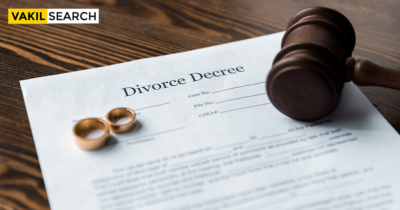In the next week, the Supreme Court will likely begin hearing a new appeal to the clause permitting recovery of marital rights in Hindu personal laws. In 2019, 3 Top courts consented to listen to the applications.
An aggrieved person may file for restitution to conjugal rights by petitioning a district court if they are satisfied that the statements in the petition are factual. Therefore, there is no legal standing for denying the application, as provided in Section 9 of the Hindu Marriage Act of 1955. some cases, a plea on conjugal rights can be a last-ditch effort to save a marriage, while in others it may serve as a precursor to divorce proceedings
Recent Plea On Conjugal Rights Pending In Supreme Court
Marriage is regarded as a holy institution in India. Marital unions in India may be performed according to various personal laws, but they are nonetheless believed to be sacred and essential to society’s well-being. The Restitution of conjugal rights is recognised to preserve the sanctity of marriage.
-
Section 9 Of The Hindu Marriage Act Contains The Fundamentals
As a “marriage saving” provision, the Hindu Marriage Law contains Section 9. If a spouse or partner is guilty of living overseas with no reasonable justification, the Court has the authority to force couples to stay together. To invoke Section 9 and be successful, three conditions must be met.
It is impossible that the couples are sharing a home: Section 9 states that one spouse must have retreated from the other’s social circle. The second need is that the partner’s disengagement from the other’s society must have occurred without any reasonable explanation or justification.
The reputation of marital rights should be sought by those who have been wronged: To get your Restitution of Conjugal Rights back, the third and last step is to go to Court and file a petition asking for them before.
-
Section 9 Of The Hindu Marriage Act Is Constitutionally Valid
Restitution for Conjugal Rights has been deemed unlawful by some, who argue that it breaches the rights granted by the Indian Constitution. According to this argument, Articles 21 and 19 of the United Nations Charter infringe the privacy rights and freedom of association, respectively, if Restitution for Conjugal Rights is implemented.
What Decisions Have Been Made?
India’s Supreme Court on Wednesday referred to as “important” a petition arguing that courts have the authority to force divorced couples “to cohabit” and engage in sexual intercourse to restore marital rights, and urged the government to respond within ten days, reports the Times of India.
Appellate counsel Indira Jaising, on behalf of the petitioners, argued that the issue is legal, so the Court should set a shorter deadline. After two weeks, the bench stated it would take up the case.
Advocate Shoeb Alam, for the interveners, said that the legality of provisions permitting courts to order separated spouses to “cohabit” or restore conjugal rights must take into account not only the marriage laws but also other provisions under IPC and other laws. There will be a hearing on July 22 for all intervention petitions, according to the Court.
Sections 9 and 22 of the Hindu Marital Law (HMA), as well as a few articles of the Civil procedure Code (CCP), are among those challenged by Ojaswa Pathak & Mayank Gupta, two students of Gujarat Law University in Gandhinagar, in their petition to the Supreme Court (CPC).
Courts may issue an order to restore conjugal privileges to the estranged couple under these circumstances. A year ago, on January 14, the Supreme Court asked the Attorney General for help. On March 5, 2019, the Supreme Court sent to a three-judge bench a petition challenging the constitutionality of clauses in the marriage rules authorising courts to require separated couples to “cohabit.”
It cited the nine-judge ruling that privacy was a fundamental right and attacked the HMA and SMA laws, stating they compel primarily reluctant women to dwell with their divorced spouses.The Court ruled that privacy was a fundamental right.
Two main components of what Indian courts call “Conjugal rights” are cohabitation and sexual relations. In India, a husband may get a court order requiring their spouse to live and engage in sexual relations. If the spouses refuse to comply with the restitution decision, they have the right to use coercive measures such as attachment of property.
Protesters said that the legal system is “facially neutral” and lays a “disproportionate burden on women” since it is based on “feudal English law” that considered the wife a “chattel” for her husband.
All of the particular legal systems in India did not recognise the remedy of restoration of marital rights.” When English law was feudal, wives were considered property of their husbands, and the same is true today. The remedy of recovery of marital rights was eliminated in the UK in 1970,” its plea said.
Furthermore, it stated that the requirements violated Article 21 of the Constitution, which guarantees the right to privacy, individual autonomy, and dignity.
Restitution of conjugal rights rules is facially impartial in that they enable both the married couple to go to Court for their rights to be restored. However, in practice, they have a profoundly discriminating impact on females. “The provision’s direct and unavoidable consequence must be considered in light of Indian society’s severely unequal family power structures,” the petition said.
Cohabitation is a personal decision, the petition said, and forcing someone to live with someone else against their will violates the individual’s right to privacy. It is a personal decision to live with another individual or engage in sexual relations with them.” Even after marriage, each person retains these characteristics.
According to a petition filed by a woman and a man, coercive actions (such as property attachments) against a spouse who refuses to get into an intimate connection violate the same.
There was a reason for having Section 9 as in Hindu Marriage Act. Still, according to the plea, that explanation is no longer valid in light of a provision for the support provided under Section 125 of Criminal Procedure.
After the Supreme Court’s 1984 ruling quashed the Andhra Pradesh Supreme Court’s judgement to dismiss Section 9 of the Hindu Marriage Act, it requested a review of that decision.
How Does The Case Look?
Those who refuse to comply with a decision to restore conjugal rights may be punished for contempt of court if they do not surrender their property. However, the Court has no authority to compel an unfaithful spouse to complete the marriage.
Who Will Be Beneficial With This Plea?
To keep the purity and legitimacy of the concept of marriage in mind, the government enacted a legislative remedy that allows one spouse to recover the other’s company without good cause.
Conclusion
Every firm or entrepreneur seeking a lawyer, tax accountant, or company secretary may turn to Vakilsearch, founded in 2011. We have played a key role in ensuring that start-ups in India are entirely compliant with the country’s complex legal framework.
Frequently Asked Questions
A plea on conjugal rights pending in the Supreme Court is significant because it indicates that the couple has exhausted all other legal options and is seeking the highest court's intervention to resolve their matrimonial dispute. The Supreme Court's judgement in such a case can have a far-reaching impact on the law of marriage and family in India.
To file a plea for restitution of conjugal rights in the Supreme Court, the aggrieved spouse must file a petition with the court, accompanied by a copy of the marriage certificate and other relevant documents. The Supreme Court will then issue a summons to the other spouse, directing them to appear in court and respond to the petition. If the other spouse fails to appear in court, the Supreme Court may pass a decree of restitution of conjugal rights in favour of the aggrieved spouse. However, the Supreme Court cannot force the other spouse to cohabit with the aggrieved spouse against their will.
The time it takes for a conjugal rights plea to be resolved in the Supreme Court varies depending on the complexity of the case and the workload of the court. However, it can take several months to years for a case to be finally disposed of.
Common grounds for such pleas reaching the Supreme Court encompass situations where one spouse unjustly refuses to live with the aggrieved partner, when a spouse cohabits with someone else, when divorce or other matrimonial relief is sought by one party, or when a prolonged separation has occurred.
Yes, there are a few latest judgments of the supreme court on restitution of conjugal rights and landmark judgments related to conjugal rights by the Supreme Court. For example, in the case of Rajeshwari Mukherjee v. Bipul Chandra Mukherjee (2005), the Supreme Court held that a decree of restitution of conjugal rights cannot be passed against a spouse who is living with another person. In the case of Rohit Kumar v. Anju Rani (2016), the Supreme Court held that a decree of restitution of conjugal rights cannot be passed against a spouse who is suffering from a mental disorder.
Yes, a plea for conjugal rights can be converted into a divorce case while it's pending in the Supreme Court. If the other spouse is not willing to cohabit with the aggrieved spouse, the aggrieved spouse can file a petition for divorce on the ground of cruelty.
During the pendency of a conjugal rights plea in the Supreme Court, the concerned spouse possesses certain entitlements, including the right to reside in the matrimonial residence, receive financial support from the other spouse, utilise their property, and access their bank accounts and other financial assets.
There are no specific legal requirements or qualifications for filing a plea on conjugal rights in the Supreme Court. However, the petition must be filed by the aggrieved spouse and must be accompanied by a copy of the marriage certificate and other relevant documents.
The Supreme Court is reluctant to pass a decree of restitution of conjugal rights in cases where the couple has been separated for an extended period. The court will consider various factors, such as the reasons for the separation, the duration of the separation, and the prospects of reconciliation, before passing a decree.
In the event that a conjugal rights plea does not yield success in the Supreme Court, the spouse facing grievances can consider two alternatives: filing a divorce petition based on cruelty or opting to maintain separate residences from the other spouse. What is the significance of a plea on conjugal rights pending in the Supreme Court?
Can you explain the legal process involved in a plea for restitution of conjugal rights in the Supreme Court?
How long does it typically take for a conjugal rights plea to be resolved in the Supreme Court?
What are the common reasons for a plea on conjugal rights to reach the Supreme Court?
Are there any recent landmark judgments related to conjugal rights by the Supreme Court?
Can a plea for conjugal rights be converted into a divorce case while it's pending in the Supreme Court?
What rights does a spouse have while a plea for conjugal rights is pending in the Supreme Court?
Are there any specific legal requirements or qualifications for filing a plea on conjugal rights in the Supreme Court?
How does the Supreme Court handle cases of conjugal rights when the couple has been separated for an extended period?
What options are available to individuals if their plea for conjugal rights is not successful in the Supreme Court?
Read More:










